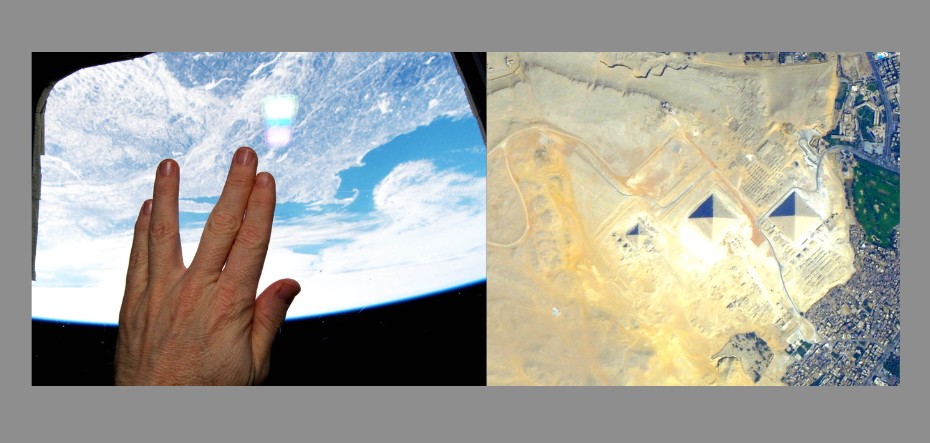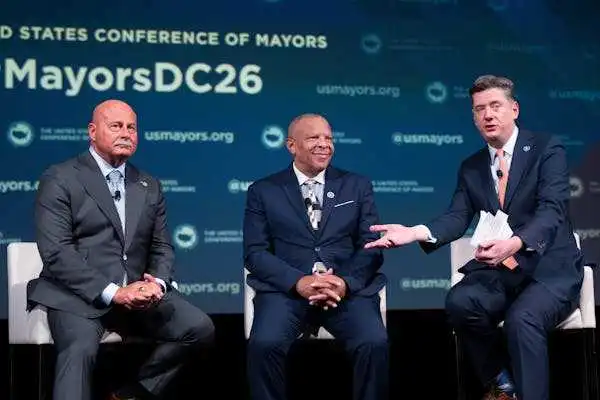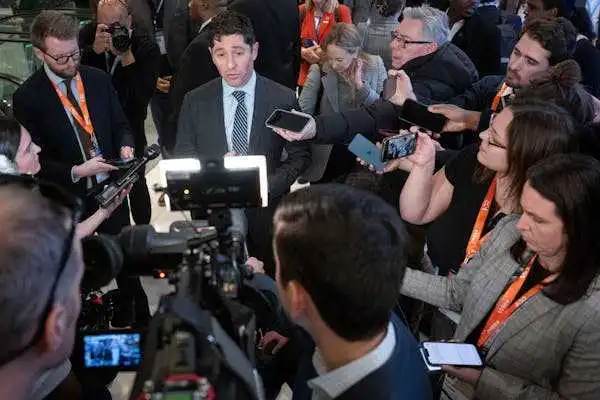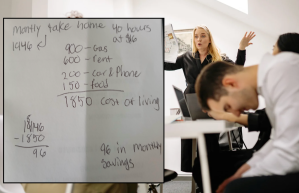Astronauts have the privilege of exploring space – an experience available to limited humans. While most of us may have seen images of celestial objects captured by NASA, the visuals of how man-made wonders look from space are rare. Astronaut Terry Virts got the opportunity to fly around in space, and during his time at the International Space Station (ISS), he captured a crystal-clear view of the pyramids of Giza. Making the most of his time at the ISS, he was able to take a picture of this wonder of the world, as reported by IFL Science.
The American astronaut took to X and posted a picture of the pyramids from space with a caption that read, “It took me until my last day in space to get a good picture of these!” The story behind this photo was special for Virts as he had been trying to capture one particular view for the last six months, living and working on the ISS. However, his wish was fulfilled on his last day in space.
This incident dates back to 2015, when the American astronaut was stationed at the ISS. Being a part of The Soyuz TMA-15M mission, he had been assigned as commander for Expedition 43, which was launched on a Russian Soyuz spacecraft and docked at the ISS. He spent 200 days in space conducting scientific experiments and spacewalks before returning to Earth, safely landing in Kazakhstan.
“I was ready to stay up there because there were still pictures I wanted to take, there were still videos I wanted to do,” Virts told Time. “If you’re an astronaut flying in space, you gotta look at that as your last flight. And so you gotta enjoy it. And I’ve got the rest of my life to be on Earth.”
Safe to say, Virts had a productive time in his seven-month mission as he snapped thousands of aerial photos of Earth and life aboard the orbiting laboratory. To be exact, Virts shot 319,275 photos, the most anyone has ever taken in space, according to a report from Greenville Journal.
His book “View From Above: An Astronaut Photographs the World” includes photos of lightning storms over the Himalayan Mountains, the ice fields of Patagonia in South America, the pyramids of Egypt, and other stunning visuals showcasing the natural beauty of Earth.
In an interview shared with Greenville Journal, Virts also talked about the importance of taking photos from space as he said, “Most people will never get a chance to visit space, so my goal with this book was to share the experience as best as I could through words and photos. I touch on launches, landings, and just about all other aspects of living in space.” The American astronaut retired in 2016, putting an end to his illustrious career in NASA. His contributions to technical roles significantly contributed to NASA’s mission success and the advancement of human spaceflight.
You can follow Astronaut Terry Virts on Instagram and Twitter for more space-related content. If you are interested in space travel, you can go through his book “How to Astronaut.”
This article originally appeared last year.
















